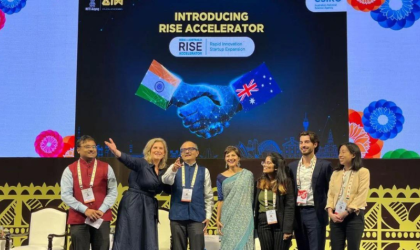Bill Pritchard is a Professor of Geography at the University of Sydney. Professor Pritchard has been working with colleagues in India for almost two decades on projects connected to rural development, food security and climate change. He has co-authored two books about India, Value Chain Struggles, about the economic and social challenges facing the tea and coffee industries of South India, and Feeding India, which addressed India’s journey towards food security in the context of the 2013 National Food Security Act, as well as numerous other publications. From 2016 to 2020, he led four University of Sydney undergraduate field trips to India involving more than 100 students.
What are you working on right now?
I have a longstanding research partnership with colleagues at the Tata Institute of Social Sciences in Mumbai. Our current project is to assess the social and economic effects of an initiative by the Government of Maharashtra to address the increasingly severe effects of drought within areas dominated by Scheduled Tribe populations. Our interest is the connection between climate change adaptation and social disadvantage. In February 2023, we visited field sites and will soon begin collecting data that will help us interpret the effectiveness of this scheme.
What’s the best part of your work?
Fieldwork is the best part of my research activities in India.




